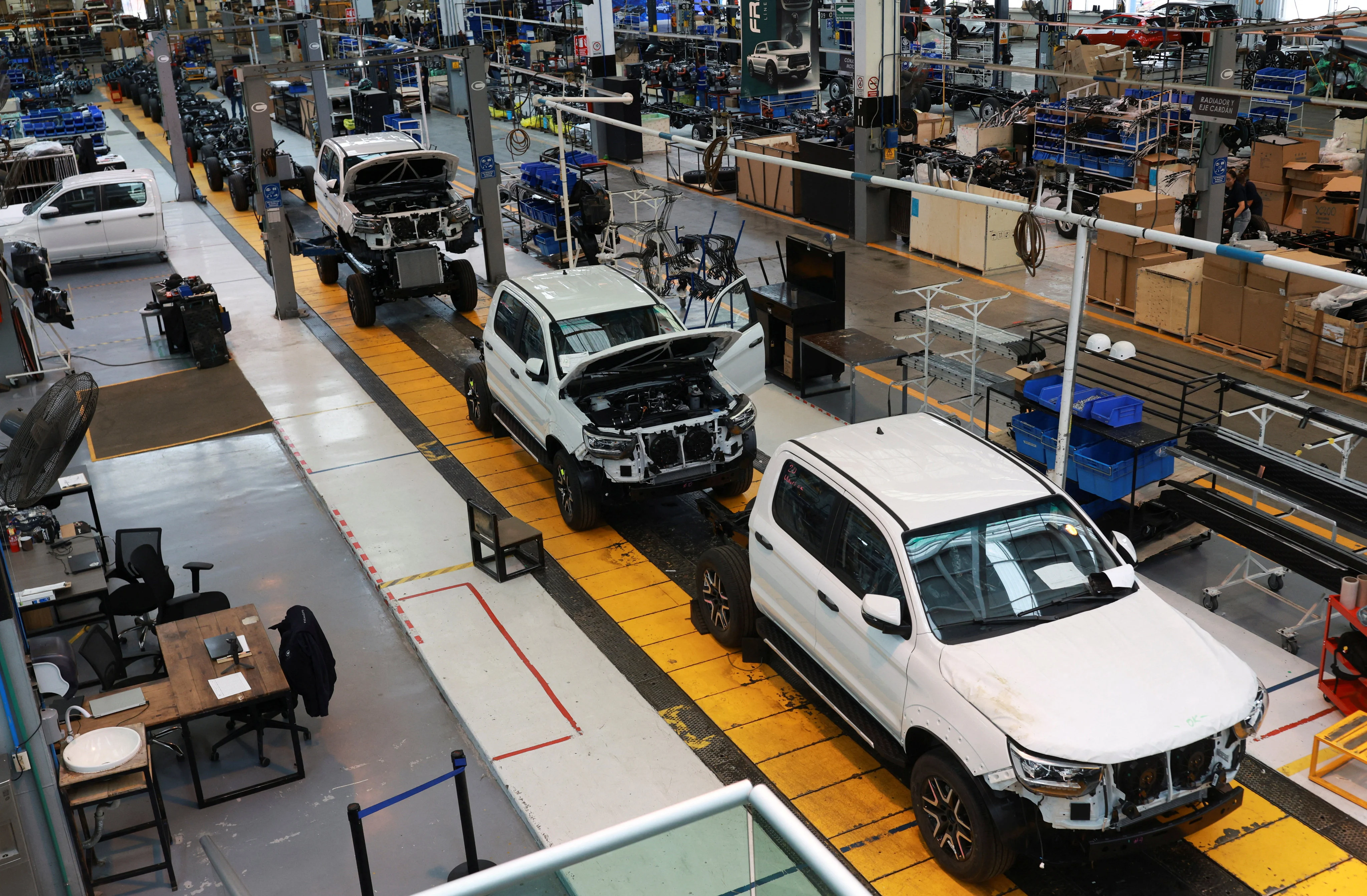By Ji Siqi,Ralph Jennings
Copyright scmp

Chinese carmakers will likely feel the sting of Mexico’s anticipated 50 per cent tariff on cars imported from Asia, but their competitive prices and global operations may offset some of the pain, according to analysts.
The proposed tariff hike, more than doubling the current level of 20 per cent, was included in a draft bill on raising levies on roughly 1,400 products – from textiles to steel – from countries with which Mexico does not have a trade deal. The bill was submitted to the Congress of the Latin American country, its economy minister, Marcelo Ebrard, said on Wednesday.
Auto-part imports will also be subject to tariffs ranging between 10 and 50 per cent, according to the bill.
Mexico was the No 1 export destination for Chinese cars in the first seven months of 2025, with shipment volumes rising 25.5 per cent in the period, year on year, to 272,100 vehicles, according to statistics from online Chinese auto marketplace Yiche.com.
The tariffs will have some impact on China’s auto sector, said Cui Dongshu, secretary general of the China Passenger Car Association.
“Mexico is also a major production base, with particularly significant imports of both automobiles and auto parts,” Cui said. “Therefore, these tariff increases will inevitably affect [Asian exports’] competitiveness.”
But for Chinese carmakers with global operations, there remains room to manoeuvre, as their vehicles may not necessarily be manufactured in Asia but could be produced in other parts of the world before being shipped to Mexico, Cui said.
Such tariff hikes could have substantial negative impacts on Chinese products and investments
Cui Fan, international trade professor
On Thursday, Chinese foreign ministry spokesman Lin Jian said at a press conference that the government opposed any outside party “coercively restricting China under various pretexts and undermining China’s legitimate rights and interests”, and would “firmly defend” those rights and interests.
“China attaches high importance to growing relations with Mexico and hopes that Mexico will work with China to foster a global economic recovery and global trade,” Lin said.
Victor Gonzalez, a senior adviser for China-Latin America legal affairs at Shenzhen-based law firm PC Woo & Zhonglun Wende, said the latest move from Mexico reflects how President Claudia Sheinbaum hopes to get along with the US before next year’s review of the United States-Mexico-Canada Agreement (USMCA) on three-way trade.
“As the USMCA 2026 general review approaches, Mexico’s main interest is to guarantee that smooth bilateral relations with its most important trading partner can be maintained and strengthened,” Gonzalez said.
Still, despite US pressure, Mexico has decided to impose tariffs on products that take into consideration Mexico’s most affected industries, all without targeting any specific country and by “strictly following” World Trade Organization rules, he said.
The 50 per cent tariff proposed on cars is the highest level of compliance with WTO rules for the Latin American country.
Mexico’s bound tariff commitments – also known as tariff ceilings – under the WTO are exceptionally high, with an arithmetic average of 36.2 per cent, while the applied rate in 2024 was only 7.4 per cent, indicating significant room for tariff increases, said Cui Fan, a professor specialising in international trade at the University of International Business and Economics, in a social media post.
“Such tariff hikes could have substantial negative impacts on Chinese products and investments,” he said.
There’s not much they can do, [but] they can set up more factories in Mexico
James Chin, Asian studies professor
James Chin, a professor of Asian studies at the University of Tasmania in Australia, said that while the tariff hike by Mexico might be a major concern for the Chinese, it could also be within their expectations.
“There’s not much they can do, [but] they can set up more factories in Mexico,” Chin said.
While all major international car brands have assembly lines operating in Mexico, Chinese brands are the only ones that have not yet built assembly factories, but only export directly, according to Gonzalez.
It is hard to tell whether the tariff hikes will push more Chinese carmakers to build factories in Mexico, he said.
“Chinese car prices are so competitive that even after taking into account the tariff increase, certain brands and models, especially the most affordable ones, are still profitable,” he said.
Chinese electric vehicle giant BYD recently shelved plans to build a manufacturing plant in Mexico after coming under pressure from both the Chinese and Mexican governments amid rising geopolitical tensions, according to industry sources and others familiar with the matter. A delegation from the company toured several states in the Latin American country last year in search of suitable land.
Victor Cadena, executive vice-president of the Mexican Chamber of Commerce in China, said that while the decree on tariff hikes has yet to be officially issued by the Mexican government, some tariffs are certainly expected to be implemented as part of the USMCA revision.



